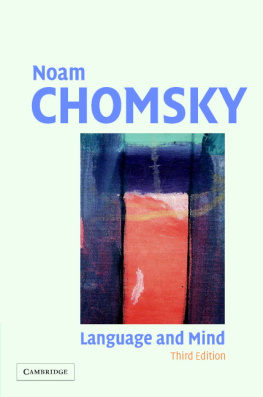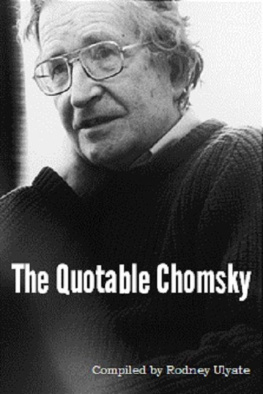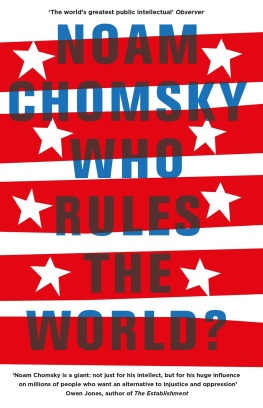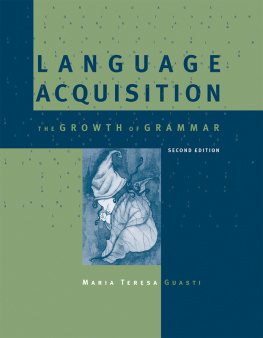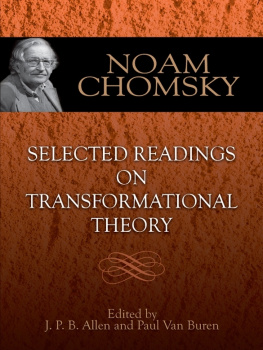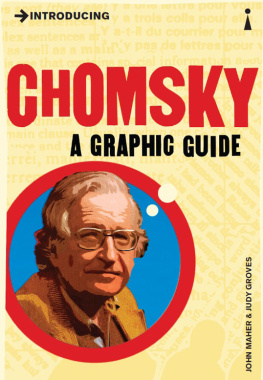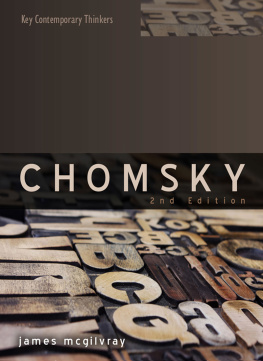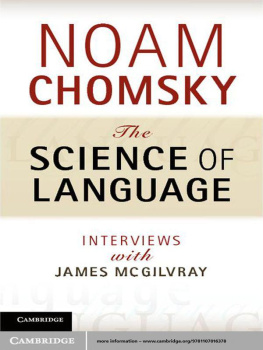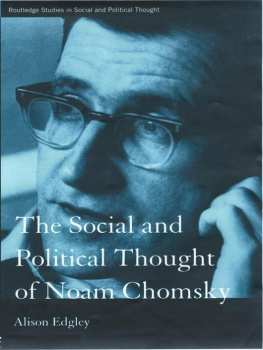Language and Mind
This is the long-awaited third edition of Chomskys outstanding collection of essays on language and mind. The first six chapters, originally published in the 1960s, made a groundbreaking contribution to linguistic theory. This new edition complements them with an additional chapter and a new preface, bringing Chomskys influential approach into the twenty-first century. present Chomskys early work on the nature and acquisition of language as a genetically endowed, biological system (Universal Grammar), through the rules and principles of which we acquire an internalized knowledge (I-language). Over the past fifty years, this framework has sparked an explosion of inquiry into a wide range of languages, and has yielded some major theoretical questions. The final chapter revisits the key issues, reviewing the biolinguistic approach that has guided Chomskys work from its origins to the present day, and raising some novel and exciting challenges for the study of language and mind.
NOAM CHOMSKY is Professor of Linguistics at Massachusetts Institute of Technology. His many books include New Horizons in the Study of Language and Mind (Cambridge University Press, 2000) and On Nature and Language (Cambridge University Press, 2002).
CAMBRIDGE UNIVERSITY PRESS
Cambridge, New York, Melbourne, Madrid, Cape Town, Singapore, So Paulo
Cambridge University Press
The Edinburgh Building, Cambridge CB2 2RU, UK
Published in the United States of America by Cambridge University Press, New York
www.cambridge.org
Information on this title: www.cambridge.org/9780521674935
Noam Chomsky 2006
This publication is in copyright. Subject to statutory exception and to the provisions of relevant collective licensing agreements, no reproduction of any part may take place without the written permission of Cambridge University Press.
First published 2006
Printed in the United Kingdom at the University Press, Cambridge
A catalogue record for this publication is available from the British Library
ISBN-13 978-0-521-85819-9 hardback
ISBN-10 0-521-85819-4 hardback
ISBN-13 978-0-521-67493-5 paperback
ISBN-10 0-521-67493-X paperback
Cambridge University Press has no responsibility for the persistence or accuracy of URLs for external or third-party internet websites referred to in this publication, and does not guarantee that any content on such websites is, or will remain, accurate or appropriate.
Preface to the third edition
The first six chapters that follow are from the late 1960s, mostly based on talks for general university audiences, hence relatively informal. The final chapter is from 2004, based on a talk for a general audience. This recent essay reviews the biolinguistic approach that has guided this work from its origins half a century ago, some of the important developments of recent decades, and how the general approach looks today to me at least.
The dominant approach to questions of language and mind in the 1950s was that of the behavioral sciences. As the term indicates, the object of inquiry was taken to be behavior, or, for linguistics, the products of behavior: perhaps a corpus obtained from informants by the elicitation techniques taught in field methods courses. Linguistic theory consisted of procedures of analysis, primarily segmentation and classification, designed to organize a body of linguistic material, guided by limited assumptions about structural properties and their arrangement. The prominent linguist Martin Joos hardly exaggerated in a 1955 exposition when he identified the decisive direction of contemporary structural linguistics as the decision that language can be described without any preexistent scheme of what a language must be. Prevailing approaches in the behavioral sciences generally were not very different. Of course, no one accepted the incoherent notion of a blank slate. But it was common to suppose that beyond some initial delimitation of properties detected in the environment (a quality space, in the framework of the highly influential philosopher W. V. O. Quine), general learning mechanisms of some kind should suffice to account for what organisms, including humans, know and do. Genetic endowment in these domains would not be expected to reach much beyond something like that.
The emerging biolinguistic approach adopted a different stance. It took the object of inquiry to be, not behavior and its products, but the internal cognitive ideas that were developed in important ways in the philosophicalscientific traditions of later years. For language, the principles on which knowledge rests are those of the internalized language ( I-language ) that the person has acquired. Having acquired these principles, Jones has a wide range of knowledge, for example that glink but not glnik is a possible lexical item of English; that John is too angry to talk to (Mary) means that John is to be talked to (if Mary is missing) but John is to do the talking (if Mary is present); that him can be used to refer to John in the sentence I wonder who John expects to see him , but not if I wonder who is omitted; that if John painted the house brown then he put the paint on the exterior surface though he could paint the house brown on the inside; that when John climbed the mountain he went up although he can climb down the mountain; that books are in some sense simultaneously abstract and concrete as in John memorized and then burned the book ; and so on over an unbounded range. The power to engender the I-language principles on which such particular cases of knowledge rest is understood to be the component of the genetic endowment that accounts for their growth and development.
Linguistics, so conceived, seeks to discover true theories of particular I-languages ( grammars ), and, at a deeper level, the theory of the genetic basis for language acquisition ( universal grammar , UG, adapting a traditional term to a new usage). Other cognitive systems, it was assumed, should be conceived along similar lines, each with its own principles, and powers of engendering them.
Within this framework, cognitive systems are understood to be, in effect, organs of the body, primarily the brain, to be investigated in much the manner of other subcomponents with distinctive properties that interact in the life of the organism: the systems of vision, motor planning, circulation of the blood, etc. Along with their role in behavior, the cognitive organs enter into activities traditionally regarded as mental: thought, planning, interpretation, evaluation, and so on. The term mental here is informal and descriptive, pretty much on a par with such loose descriptive terms as chemical, electrical, optical, and others that are used to focus attention on particular aspects of the world that seem to have an integrated character and to be worth abstracting for special investigation, but without any illusion that they carve nature at the joints. Behavior and its products such as texts provide data that may be useful as evidence to determine the nature and origins of cognitive systems, but have no privileged status for such inquiries, just as in the case of other organs of the body.

